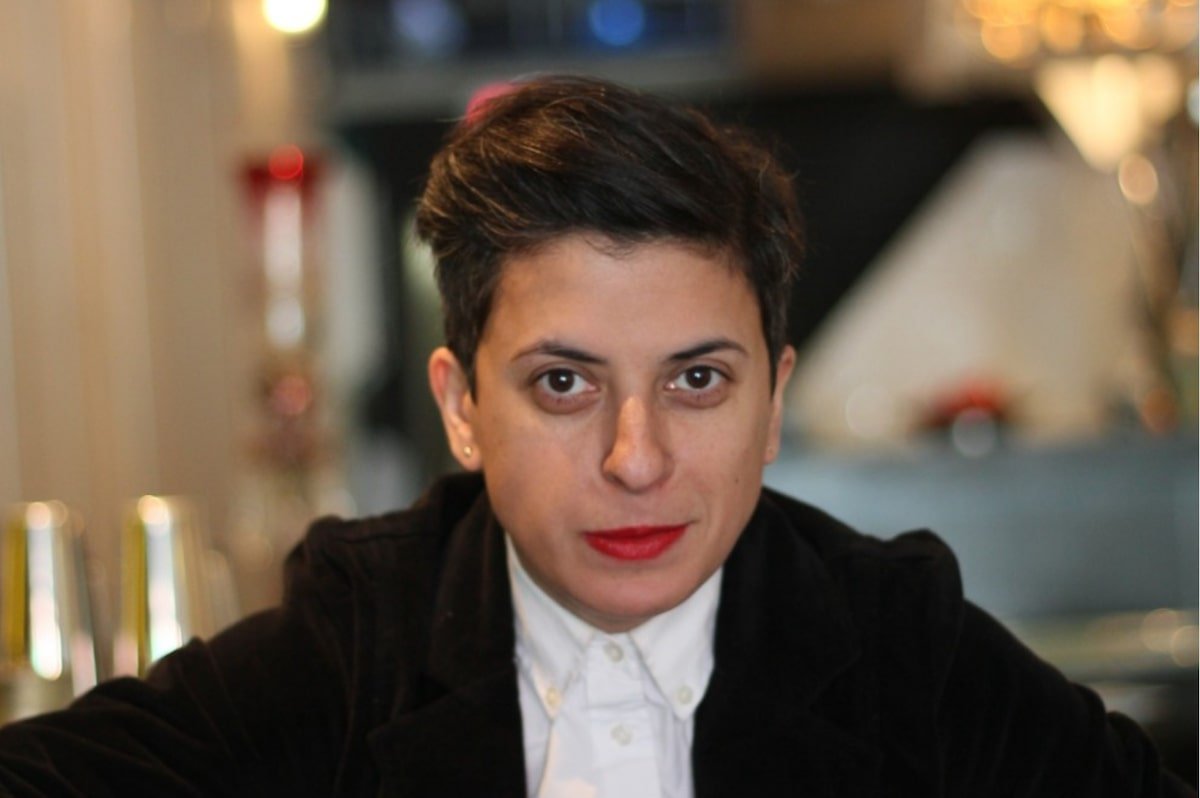Samira Mohyeddin is a Toronto-based journalist and journalism fellow at the University of Toronto’s Women and Gender Studies Institute.
The first time I saw Iranian singer Zara Esmaeili was in a video on Instagram. She belted out Radiohead’s Creep in a Tehran square surrounded by dozens of people who burst into applause, as she nailed Thom Yorke’s difficult crescendo at the end of the song. The next video was of her singing Janis Joplin’s Piece of My Heart. The last video was her singing Back to Black by Amy Winehouse.
It was the last video posted because Zara’s page (profile name: Xarax Music) no longer exists on Instagram, and she hasn’t been seen or heard from in nearly two months. On July 25, the 29-year-old, who performed in public without a head covering in contravention of Iranian law, was abducted from her home by police. For three weeks afterward, her now-shuttered page, which had featured hundreds of videos of her performing, only had the logo of Iran’s judiciary on it, accompanied by the words “By order of the judiciary, this page has been shut down,” written in Persian.
Last month, the organizations Artists At Risk Connection and PEN America drew attention to Zara’s disappearance, and her legions of fans took to X, posting with the tag #FreeXara. But free her from where? From whom? Neither her friends nor her family know where she is.
Zara’s voice is not the first to be silenced. For 45 years, Iranian women have been systemically forbidden from singing or performing in public for an audience. That’s what made Zara extraordinary. Her performances were provocative and powerful.
In Iran’s totalitarian theocracy, under Article 638 of their Islamic Penal Code, “anyone who explicitly violates any religious taboo in public, besides being punished for the act, should also be imprisoned from 10 days to two months, or should be flogged (74 lashes).” Zara openly committed two crimes as a woman in Iran: showing her hair and singing in public. She is often referred to as a “street performer,” but the streets were the only outlet afforded to her. Zara should be referred to as a contralto. She should be on a stage. She should be introduced in a concert hall. Instead, she’s disappeared somewhere in the dungeons of Iran’s judiciary.
Sept. 16 marks the two-year anniversary of the killing of Mahsa (Jina) Amini at the hands of Iran’s “morality” police. Her death launched a global movement. Protests were held around the world as we saw the mobilization of millions of people who were appalled at the idea of a 22-year-old woman being killed for showing her hair. Several prominent female figures, from European Parliament members to film stars, cut their hair in solidarity with Iranian women.
But the violence has continued. In the two years since Mahsa’s death, 16-year-old Armita Geravand fell into a coma and died after she was allegedly assaulted by morality police for not covering her hair on a subway car. Arezoo Badri, a 31-year-old mother of two, was paralyzed after police shot at her car for disobeying hijab laws.
Last month, the Taliban made it illegal for women’s voices to be heard in public in Afghanistan. Although Afghan women’s lives under the Taliban are extremely limited compared to women in Iran, the desire to control women’s movements, dress and voices stems from the same system of gender apartheid.
Despite the state’s machinery of violence and continued crackdowns, however, Iranian women continue to defy the laws of mandatory hijab-wearing.
I spoke with Zara via Instagram on June 6. We exchanged pleasantries after she saw that I had shared her video. I told her what an amazing voice she has and that she needs to be heard by the world. That’s the last time I got to speak with her.
In March, the United Nations Fact-Finding Mission on Iran found the Iranian government responsible for the death of Mahsa Ahmini. But the machinery that killed Mahsa was set in motion 45 years ago. Prior to 1979, Iran had a robust list of famous female singers, none bigger than Googoosh, who finally found her voice again 24 years ago, after leaving the country.
Silence or exile. Those are the choices given to women who want to sing in Iran. But that’s not a choice. That’s a crime.
Zara Esmaeili is part of a generation of Iranian women who have flummoxed Iran’s clerics and kleptocrats. They don’t know what to do with these young women, who openly defy the clerics’ power and the patriarchal persecution of their voices and bodies.
I know why the caged bird sings, and she deserves to be heard. Where is Zara?
